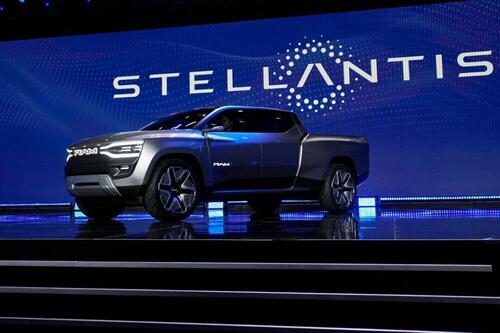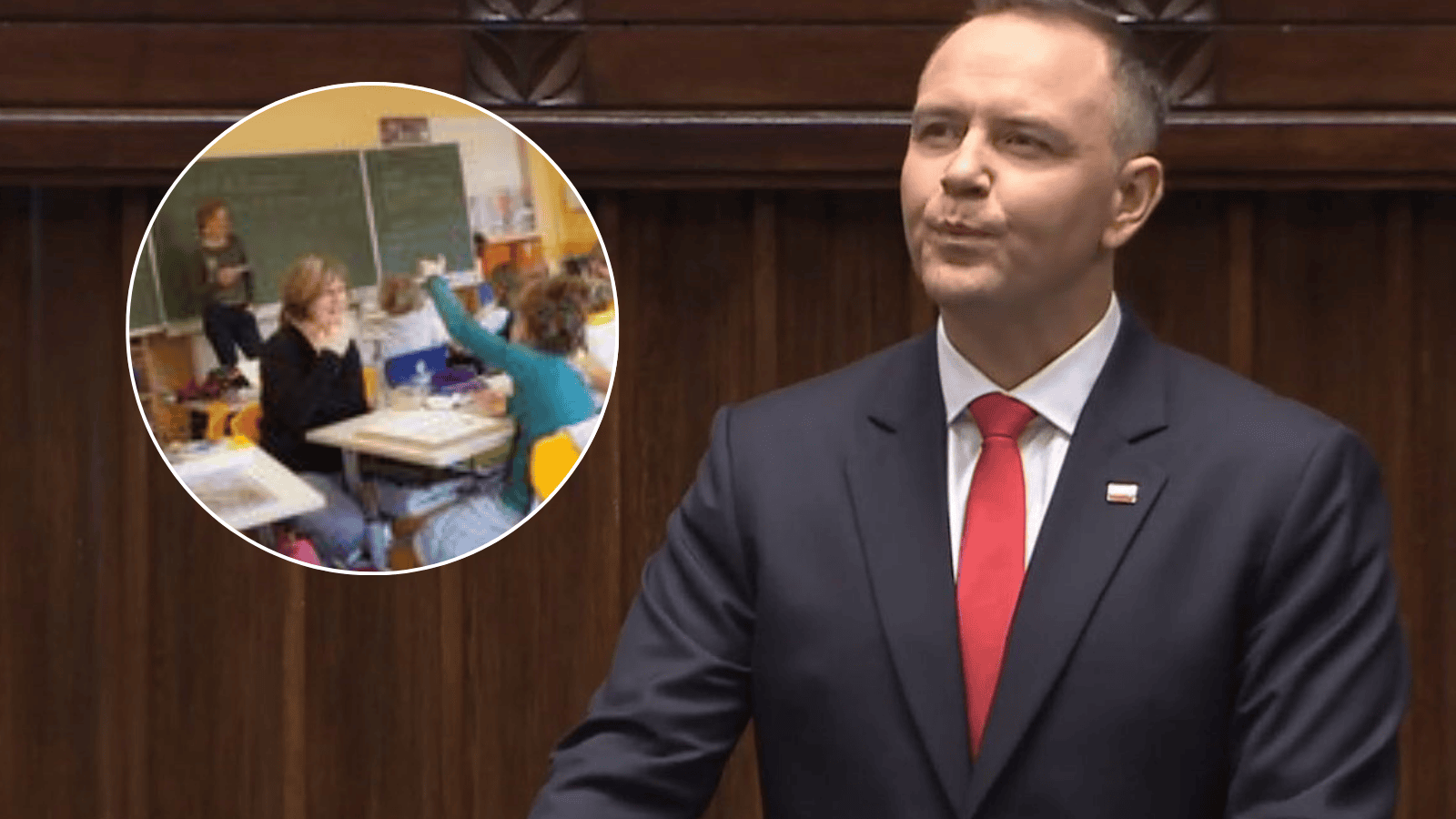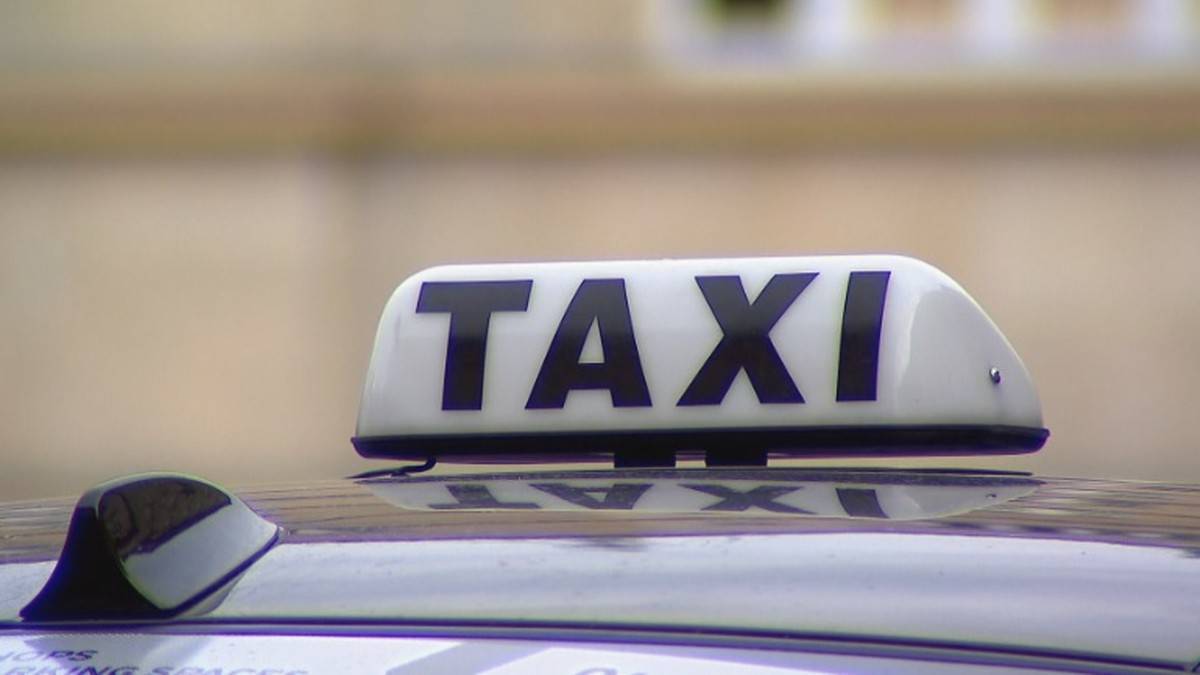
Ram Cancels All-Electric Pickup Truck Plan Citing Slowing Demand
Ram has abandoned plans to launch an electric pickup truck, according to a Sept. 12 statement from Stellantis.
“As demand for full-size battery-electric trucks slows in North America, Stellantis is reassessing its product strategy and will discontinue development of a full-size [battery-electric] pickup,” the company stated.
In December 2024, the company stated that it planned on launching its Ram 1500 battery-electric pickup in the first half of 2025.

As part of the latest decision, Ramcharger, a pickup truck featuring an electric battery and a gas engine, will be renamed the Ram 1500 REV.
“This vehicle will set a new benchmark in the half-ton segment, offering exceptional range, towing capability, and payload performance,” the Stellantis statement reads.
As Naveen Athrappully reports below for The Epoch Times, Stellantis’s decision to end its full battery-electric trucks comes as a federal tax incentive for purchasing electric vehicles (EVs) is scheduled to end this month.
The New Clean Vehicle Tax Credit grants up to $7,500 in incentives for buying an EV. The credit was offered as part of the Inflation Reduction Act, signed into law by President Joe Biden in 2022.
On July 4, President Donald Trump signed the One Big Beautiful Bill Act into law, scheduling the credit to end on Sept. 30. After this date, EV purchases will stop receiving subsidies.
In a Sept. 9 statement, General Motors said it expects negative effects over the short term from the incentives ending.
It stated that August was GM’s “best month ever” in terms of EV sales and that the company is expecting strong demand in September as well.
“The question, of course, is what’s next?“ the company stated. ”There’s no doubt we’ll see lower EV sales next quarter after tax credits end September 30, and it may take several months for the market to normalize. We will almost certainly see a smaller EV market for a while, and we won’t overproduce.”
However, GM remains positive about the EV market’s potential.
“We believe GM can continue to grow EV market share,“ the company stated. ”Our confidence in the future of our EV business starts with our portfolio. Before there was an [Inflation Reduction Act], the strongest segments were affordable EVs and luxury, and we have those bases covered with our stunning Cadillacs, the Chevrolet Equinox EV, and soon, the new Chevrolet Bolt.”
According to a Sept. 3 statement from Cox Automotive, the EV market outlook among dealers hit a “record low” in the third quarter.
“The EV market outlook index, which asked dealers about the EV market three months from now, dropped to 30, the lowest score on record,” Cox stated in a commentary.
Jonathan Smoke, chief economist at Cox, said: “The outlook for future EV sales really comes as no surprise: Dealers have calendars too; they see the end of government-backed incentives fast approaching and are expecting a slowdown as the market adjusts to a new reality in Q4.”
On his first day in office, Trump signed the “Unleashing American Energy” executive order, calling for the removal of incentives for EVs.
Burdensome and ideologically motivated regulations have impeded the development of the United States’ abundant energy resources, the order states.
The order calls for ending the EV mandate, removing regulatory barriers to motor vehicle access, and terminating state emission waivers that limit the sale of gas-powered vehicles.
In June, Trump signed a package of resolutions blocking California’s vehicle emission mandates, which included phasing out the sale of new gasoline-only vehicles by 2035.
California Gov. Gavin Newsom and California Attorney General Rob Bonta then sued the administration over the revocation of state policies, according to a June 12 statement from the governor’s office.
“Trump’s all-out assault on California continues—and this time he’s destroying our clean air and America’s global competitiveness in the process,“ Newsom said at the time. ”We are suing to stop this latest illegal action by a President who is a wholly-owned subsidiary of big polluters.”
California is also mulling funding the $7,500 tax credit for EV vehicles as a way to maintain its zero emissions market.
Meanwhile, a Sept. 9 analysis by EY (previously Ernst & Young) predicts that EV sales in the United States will slow down because of the end of incentives, legislative uncertainty, and new import tariffs.
Tyler Durden
Mon, 09/15/2025 – 13:25

 3 miesięcy temu
3 miesięcy temu










